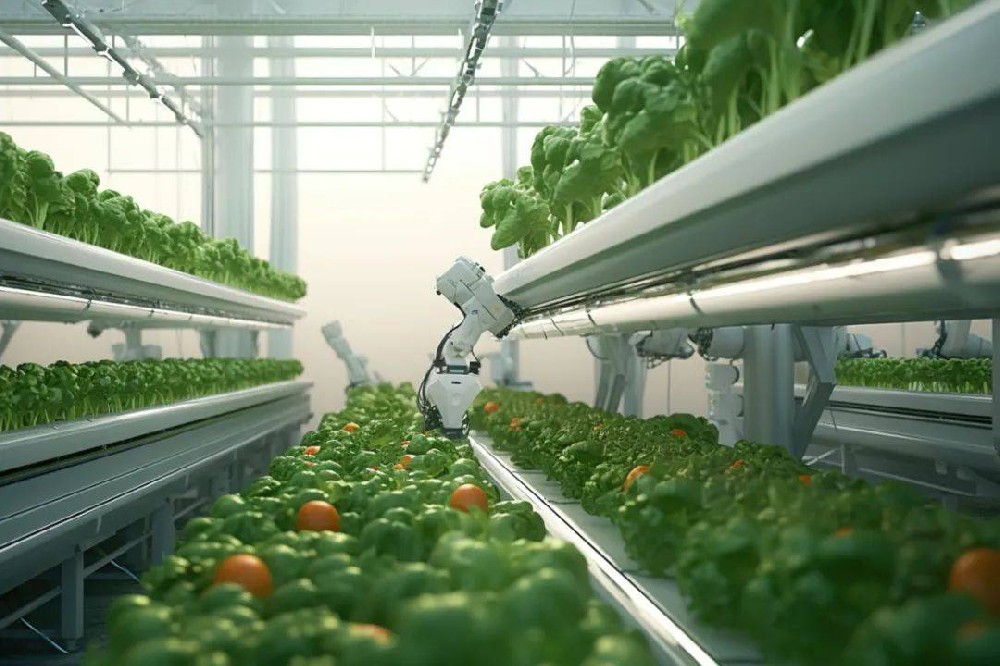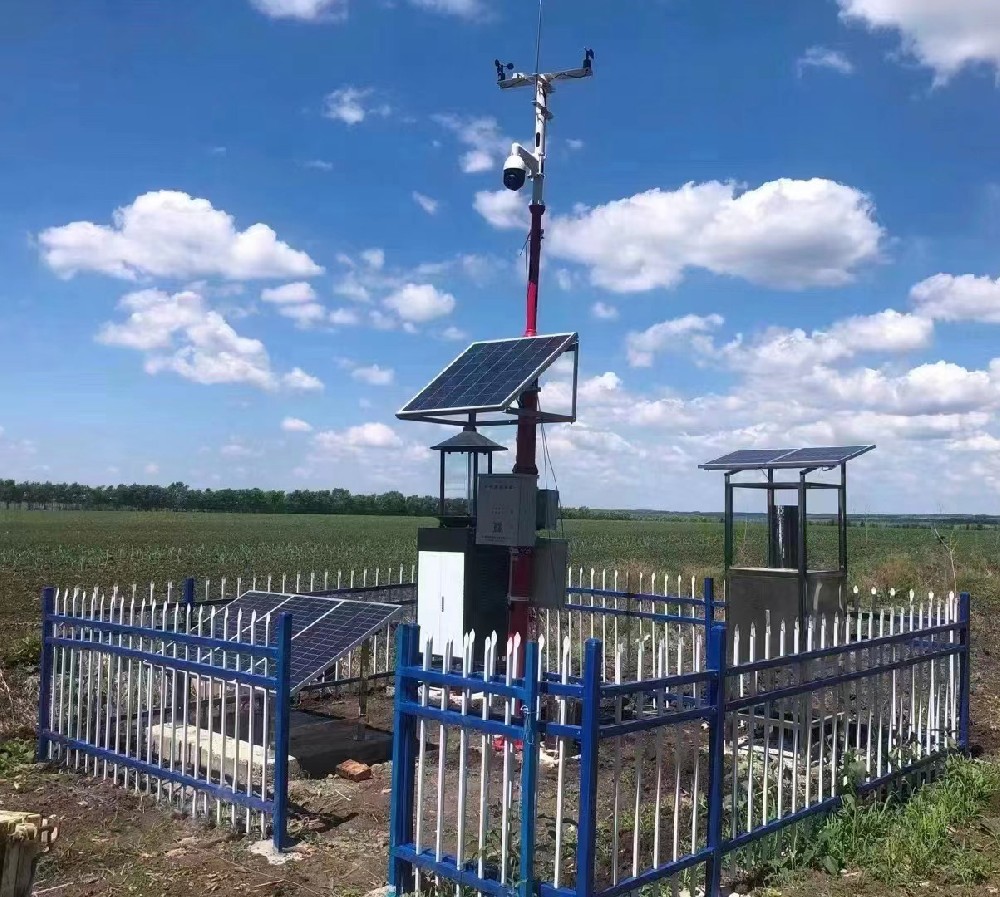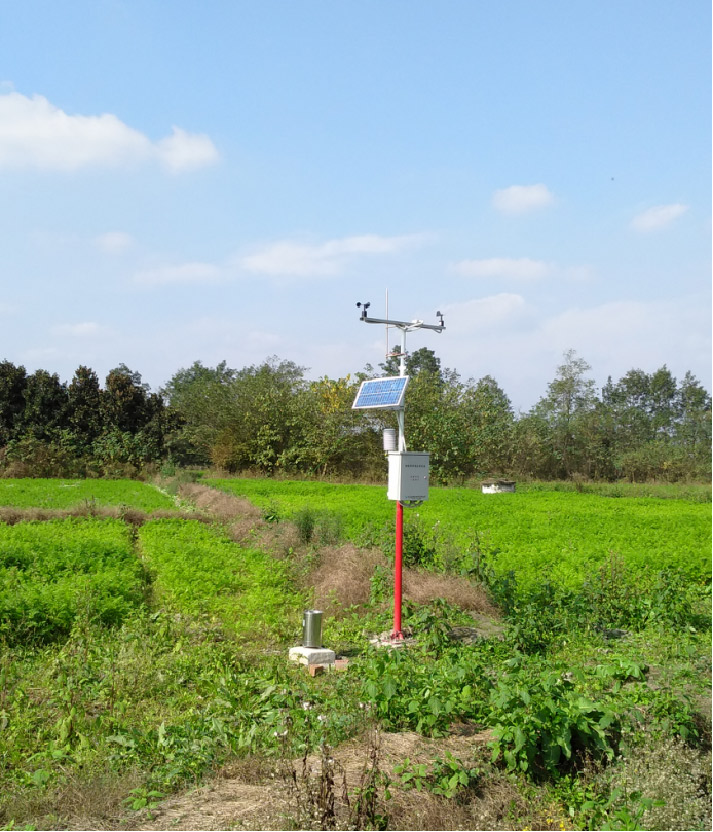

— Blogs —
—Products—
 Consumer hotline +8618073152920
Consumer hotline +8618073152920 WhatsApp:+8615367865107
Address:Room 102, District D, Houhu Industrial Park, Yuelu District, Changsha City, Hunan Province, China
Product knowledge
Time:2024-11-18 08:45:11 Popularity:1209
In smart agriculture, weather information is like a “compass” for farmers, guiding them to realize precision planting. The following are the specific ways in which weather information can help farmers realize precision planting:
Smart agriculture weather stations can monitor the temperature, humidity, light, wind speed, wind direction, precipitation and other key weather parameters of farmland in real time. These data are crucial for understanding the real-time meteorological conditions of farmland and can help farmers keep abreast of changes in the farmland environment. Based on these real-time data, farmers can adjust their crop planting strategies to ensure that their crops grow under optimal growing conditions.

Based on real-time weather data, farmers can accurately schedule irrigation and fertilization. For example:
- Soil moisture monitoring: Through sensors installed in the field, combined with meteorological data, soil moisture conditions can be monitored so that irrigation can be precisely controlled.
- Weather forecasting: Using weather forecasting information, farmers can predict future rainfall and avoid irrigating before and after rainfall to reduce water waste.
- Fertilizer strategy: Adjusting the fertilizer strategy according to the changes in temperature and humidity can reasonably provide the nutrients needed by crops, avoid waste and pollution, and improve the growth rate and yield of crops.
Meteorological data and environmental information provided by smart agricultural weather stations help farmers understand the suitable growing conditions and growth cycles of different crops. Based on this information, farmers can choose well-adapted and resistant crop varieties and rationally adjust the planting structure. Example:
- Arid areas: choose drought-resistant crops to improve yield stability.
- Changes in climatic conditions: adjust the planting period and density of crops according to changes in climatic conditions, so as to make them better adapt to the local climatic environment.
Through big data analysis and artificial intelligence technology, the smart agricultural weather station can provide farmers with forecast information on weather disasters and pests. Farmers can prepare for disaster prevention and mitigation in advance based on this predicted information, such as: Reinforcing the drainage system: to prevent flooding and reduce pests:
- Reinforcing drainage systems: preventing flooding disasters.
- Adjusting irrigation strategies: to cope with drought.
- Use of pest control drugs: to control diseases and pests before they break out.
Smart agro-weather stations not only provide real-time monitoring data, but also provide farmers with intelligent decision support through big data analysis and artificial intelligence technology. Based on historical meteorological data and crop growth models, the system can predict future trends in meteorological changes and crop growth, and provide farmers with scientific planting advice and management strategies. This helps farmers prepare in advance for possible meteorological disasters and pest and disease risks.

- Background: Yuzhong County in Lanzhou City has become an ideal area for producing plateau summer vegetables due to its unique weather conditions such as cool and dry climate above 1,500 meters above sea level and sufficient sunshine hours. However, from March to October every year, when the plateau summer vegetables are growing and on the market, meteorological disasters such as drought, cold wave, frost, high temperature, heavy rainfall and localized heavy precipitation, hail, thunderstorms and gusty winds are frequent, which have serious impacts on the yield and quality of plateau summer vegetables.
- Application of meteorological information: Lanzhou meteorological department has made efforts in precision monitoring, supported by big data platform, accurate research and judgment, carrying out progressive services, producing and issuing meteorological risk warnings for vegetable agriculture, and proposing disaster prevention and mitigation measures in sub-region, sub-category, and sub-crops, and carrying out thematic services for growers in the first time. At the same time, Lanzhou Municipal Bureau of Meteorology also with the China Meteorological Administration Lanzhou Institute of Arid Meteorology, Lanzhou Regional Climate Center and other scientific research institutes, units, to carry out scientific experiments, improve the plateau summer vegetables service indicators.
- Effect: Through the precise application of meteorological information, the planting area of plateau summer vegetables in Yuzhong County of Lanzhou City has realized the real-time monitoring of high-impact meteorological elements in the whole growth cycle, which has effectively reduced the impact of meteorological disasters on plateau summer vegetables. The growers can adjust the planting strategy according to the meteorological warning information in time, which ensures the stable production and abundant harvest of plateau summer vegetables. At the same time, the precise application of meteorological information also improves the quality and yield of plateau summer vegetables, bringing higher economic benefits to farmers.

- Background: In the High-standard Grain Field Demonstration Park, farmers use the Automated Agricultural Meteorological Observation System (AAMOS) to learn about key meteorological parameters, such as humidity, temperature, rainfall, wind speed, and so on, in real time on their farmland.
- Meteorological Information Application: Through the “Dr. Weather” application on their cell phones, farmers can get real-time forecasts of pest and disease levels as well as prevention and control recommendations. The app provides detailed information on when to prevent, which pests to prevent, and preventive measures, just like having a meteorologist by their side. In addition, the weather information helps farmers achieve precise irrigation and precise fertilization, which improves the growth rate and yield of crops.
- Effect: Through the precise application of weather information, farmers are able to arrange farming activities scientifically and rationally, avoiding losses caused by weather disasters, pests and diseases. Meanwhile, the application of precise irrigation and precise fertilization also improved the quality and yield of crops, bringing higher economic benefits to farmers.
- Background: The agro-meteorological conditions in Luyuan Township, Gansu Province, are complex, and farmers need more accurate meteorological information to guide the cultivation of cash crops.
- Application of meteorological information: The Gansu Provincial Meteorological Bureau organized experts to carry out technical lectures and training in Luyuan Township, focusing on cash crops such as potato, Codonopsis pilosula, and Astragalus membranaceus. Farmers learned how to use meteorological information to guide the planting and management of cash crops. For example, they would choose the right sowing time and planting density according to the weather forecast to ensure that the crops grow under the best growing conditions.
- Results: Through the precise application of weather information, farmers have successfully improved the yield and quality of cash crops. They were able to adjust their planting strategies according to changes in meteorological conditions, avoiding losses due to meteorological disasters. At the same time, the precise application of meteorological information also promoted the development of the local agricultural economy and brought higher income to farmers.
Meteorological information plays a crucial role in smart agriculture. It helps farmers make more scientific and efficient farming decisions by providing accurate weather forecasts and environmental data, thus improving crop yield and quality, reducing production risks, and realizing the sustainable development of agriculture. Specifically, weather information helps farmers:
1. monitor the farmland environment in real time and adjust planting strategies.
2. apply irrigation and fertilizer accurately, and improve the efficiency of resource utilization.
3. Optimize planting structure and variety selection to improve yield stability.
4. predict meteorological disasters, pests and diseases, and prepare for disaster prevention and mitigation in advance. 5. provide intelligent decision-making support.
5. provide intelligent decision-making support and scientific management of farmland.
Through these measures, meteorological information provides farmers with scientific and reasonable planting suggestions and management strategies, helping them realize stable and high crop yields and economic benefits.
Related recommendations
Sensors & Weather Stations Catalog
Agriculture Sensors and Weather Stations Catalog-NiuBoL.pdf
Weather Stations Catalog-NiuBoL.pdf
Related products
 Combined air temperature and relative humidity sensor
Combined air temperature and relative humidity sensor Soil Moisture Temperature sensor for irrigation
Soil Moisture Temperature sensor for irrigation Soil pH sensor RS485 soil Testing instrument soil ph meter for agriculture
Soil pH sensor RS485 soil Testing instrument soil ph meter for agriculture Wind Speed sensor Output Modbus/RS485/Analog/0-5V/4-20mA
Wind Speed sensor Output Modbus/RS485/Analog/0-5V/4-20mA Tipping bucket rain gauge for weather monitoring auto rainfall sensor RS485/Outdoor/stainless steel
Tipping bucket rain gauge for weather monitoring auto rainfall sensor RS485/Outdoor/stainless steel Pyranometer Solar Radiation Sensor 4-20mA/RS485
Pyranometer Solar Radiation Sensor 4-20mA/RS485
Screenshot, WhatsApp to identify the QR code
WhatsApp number:+8615367865107
(Click on WhatsApp to copy and add friends)
